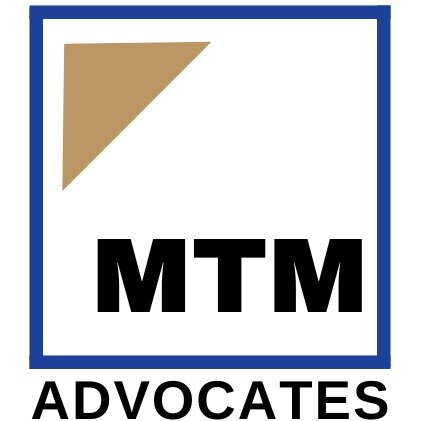Best Tax Increment Financing Lawyers in Ruaka
Share your needs with us, get contacted by law firms.
Free. Takes 2 min.
List of the best lawyers in Ruaka, Kenya
About Tax Increment Financing Law in Ruaka, Kenya
Tax Increment Financing (TIF) is a public financing method that is used for subsidizing redevelopment, infrastructure, and other community improvement projects. In Ruaka, Kenya, TIF is utilized as a strategy to stimulate economic development in underdeveloped or stagnant areas by leveraging future tax revenues. The local government designates a TIF district, and the increase in property tax revenues generated by the increased property values within that district is used to fund the improvement projects.
Why You May Need a Lawyer
Understanding and navigating the complexities of Tax Increment Financing can be challenging. You may need a lawyer in the following situations:
- To understand your rights and obligations within a TIF district.
- If you are a developer seeking advice on utilizing TIF for a project.
- If you are a property owner affected by redevelopment projects and need guidance.
- When negotiating contracts or agreements related to TIF-funded projects.
- If you have disputes or legal issues concerning the implementation or impact of TIF.
Local Laws Overview
The legal framework governing Tax Increment Financing in Ruaka is guided by national policies and local regulations. Key aspects include:
- The local government’s authority to establish TIF districts.
- Criteria and procedures for designating TIF districts, including public hearings and input.
- Regulations on the use of TIF funds, ensuring they are used for eligible projects like infrastructure improvements, housing development, or public amenities.
- Requirements for accountability and transparency in reporting the use of TIF funds.
- Protections for property owners and residents within TIF districts.
Frequently Asked Questions
What is a TIF district?
A TIF district is a designated geographical area within which future property tax revenue increases are used to finance redevelopment or improvement projects.
How does TIF affect my property taxes?
TIF does not increase property taxes. Instead, it reallocates future property tax revenue increases to finance development projects within the TIF district.
Who decides what projects are funded by TIF?
Local government authorities decide on projects funded by TIF, often with input from community members and stakeholders.
Can TIF funds be used for any type of project?
No, TIF funds are typically restricted to certain types of projects, such as infrastructure, public facilities, and affordable housing.
How long does a TIF district last?
The duration of a TIF district can vary, but it is usually established for a period sufficient to achieve its redevelopment goals, often ranging from 15 to 30 years.
How can I participate in TIF discussions or decisions?
Community members can participate by attending public hearings, offering feedback during public comment periods, and engaging with local government representatives.
What protections exist for residents in TIF districts?
Protections may include measures to prevent displacement, opportunities for community input, and oversight to ensure the fair distribution of TIF benefits.
How are TIF funds monitored and accounted for?
Local authorities are typically required to maintain transparency in reporting TIF expenditures and ensure compliance with applicable laws and regulations.
Can TIF districts be dissolved before their scheduled end date?
Yes, TIF districts can be dissolved if redevelopment objectives are met early or if the district is no longer viable, but this requires action from the local governing body.
How does TIF impact economic development in Ruaka?
TIF can stimulate economic growth by attracting private investment, creating jobs, and revitalizing underdeveloped areas, resulting in increased economic activity.
Additional Resources
For further information on Tax Increment Financing in Ruaka, consider the following resources:
- Local government offices responsible for urban planning and development.
- Kenya’s National Treasury and Planning for policy frameworks.
- Legal aid organizations or law firms specializing in urban development.
- Community-based organizations focused on sustainable development.
Next Steps
If you require legal assistance with Tax Increment Financing in Ruaka, the following steps can guide you:
- Research and identify lawyers or law firms with expertise in TIF and urban development law.
- Prepare a list of questions or issues you have regarding TIF to discuss with your lawyer.
- Schedule consultations with one or more legal professionals to evaluate your situation.
- Discuss potential legal strategies and actions with your lawyer, keeping your objectives in mind.
- Ensure clear communication and understanding of the legal process involved in addressing your TIF concerns.
Lawzana helps you find the best lawyers and law firms in Ruaka through a curated and pre-screened list of qualified legal professionals. Our platform offers rankings and detailed profiles of attorneys and law firms, allowing you to compare based on practice areas, including Tax Increment Financing, experience, and client feedback.
Each profile includes a description of the firm's areas of practice, client reviews, team members and partners, year of establishment, spoken languages, office locations, contact information, social media presence, and any published articles or resources. Most firms on our platform speak English and are experienced in both local and international legal matters.
Get a quote from top-rated law firms in Ruaka, Kenya — quickly, securely, and without unnecessary hassle.
Disclaimer:
The information provided on this page is for general informational purposes only and does not constitute legal advice. While we strive to ensure the accuracy and relevance of the content, legal information may change over time, and interpretations of the law can vary. You should always consult with a qualified legal professional for advice specific to your situation.
We disclaim all liability for actions taken or not taken based on the content of this page. If you believe any information is incorrect or outdated, please contact us, and we will review and update it where appropriate.








